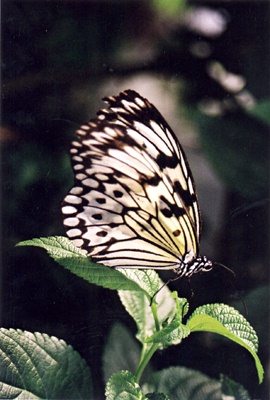All Nonfiction
- Bullying
- Books
- Academic
- Author Interviews
- Celebrity interviews
- College Articles
- College Essays
- Educator of the Year
- Heroes
- Interviews
- Memoir
- Personal Experience
- Sports
- Travel & Culture
All Opinions
- Bullying
- Current Events / Politics
- Discrimination
- Drugs / Alcohol / Smoking
- Entertainment / Celebrities
- Environment
- Love / Relationships
- Movies / Music / TV
- Pop Culture / Trends
- School / College
- Social Issues / Civics
- Spirituality / Religion
- Sports / Hobbies
All Hot Topics
- Bullying
- Community Service
- Environment
- Health
- Letters to the Editor
- Pride & Prejudice
- What Matters
- Back
Summer Guide
- Program Links
- Program Reviews
- Back
College Guide
- College Links
- College Reviews
- College Essays
- College Articles
- Back
Amma MAG
First there were butterfly crackers and squares of cheese at the kitchen table. Amma spoke Tamil and I didn't understand, but I knew she got out the crackers and that she cut the squares of cheddar for me. I liked adults who did this. I was four, and I liked Amma.
Next there were nightgowns at Christmas – beautiful and lacy – fresh off Amma's sewing machine. “Thank you,” I said when my parents nudged me, and I hugged her, feeling her stiff, silky sari under my little hands. It was so unlike what my mother and aunts wore, but it felt right on her, because she was Amma.
Later, there were dresses and stockings, sewn and knitted, even as I started to notice Amma's bony brown hands and wondered, Should they still be sewing?
Lastly there were stories. “She married for love,” my mother told me. “She married for love, even though she had an arranged marriage like everyone in those days in Sri Lanka. And that husband she married for love left her when the children were young, leaving Amma to raise them on her own. So Amma arranged a marriage for her only daughter, Ann, but Ann came to college in the United States and fell in love too.”
“What next?” I asked my mother, wondering how Ann had wound up married to my mother's brother.
“Amma came to the United States and Ann introduced her to Noel, who took her to the movies and showed her around as no one else had. Over time, Amma came to like Noel, and Ann and Noel got married, and you know the rest. Amma's lived with Ann and Noel for 15 years now.”
There was another story, too. “She hid guns in her house,” my mother told me. “In Sri Lanka, the Tamil were the minority. They were fighting the majority, the Sinhalese. Amma and Ann are Tamil. They were displaced from Sri Lanka because of the fighting, but, while they were there, Amma helped the Tamil.”
The Amma I knew spoke broken English and sniffed people as a way of saying hello. She talked to my Aunt Ann in Tamil, shuffled around in a sari, carried hot sauce to spice up our bland Minnesota food, and cooked amazing Sri Lankan curry. She sewed and knitted and took care of her grandchildren – my cousins. When I was nine, Amma taught me to write my name phonetically in Tamil.
Amma's dying now, and I'm sorry I didn't ask her more about her life. I attended her citizenship ceremony, but I don't know what it was like for her, coming to the United States and experiencing a different culture. She's watched her grandchildren grow into Americans who speak only some Tamil and rarely wear their traditional Sri Lankan clothes. Yet she reminds all of us of the Sri Lankan culture through her traditional cooking, her clothes, and her presence in our lives.
Amma means “mother” in Tamil. She has only two children, yet she's Amma to us all. Mother, grandmother, aunt, immigrant, cook, tailor, teacher of Tamil – and quiet love murmured in her second language. Amma.

Similar Articles
JOIN THE DISCUSSION
This article has 5 comments.

4 articles 0 photos 6 comments
Favorite Quote:
"My thoughts are stars I cannot fathom into constellations." - John Green.